In 2012, I had the opportunity to take part in a fascinating discussion on the reasons for sustainable travel, first online and then in person at Florens2012 in Florence, Italy. The conference explored travel and its relationship to the heritage of a place: culture, history, landscape, food and wine, tradition, and more. Workshops and speakers discussed cultural and environmental heritage, including why the history of our culture and land is important and therefore needs to be preserved, and how travel and tourism interact with its preservation (of archaeological sites, paintings, even whole cities).
I heard experts tell of the effect that too much tourism is already having on Italy’s greatest heritage sites, especially as the government does not adequately fund restoration and preservation efforts. This problem speaks to the need for sustainable travel, that is, more responsible travel, a type that would spread tourists out to different areas of Italy and would focus on more quality experiences versus hitting a dizzying list of “must-sees,” which is what most of the 45 million+ tourists who come to Italy every year do.
The interaction between travel and cultural preservation is not just relevant to Italy. It is a worldwide issue, as I will address in a moment, but first let’s look at the example of how tourism has affected heritage in Italy:
The need for sustainable travel in Italy:
Italy represents possibly the greatest example of the clash between tourism and preserving history. Streams of tourists constantly pour into Italy’s main historic centers, over time affecting the quality of life of local residents and the state of the country’s amazing artistic treasures. Thirty-five percent of the museum visits are to just the five big museums in Italy. One speaker mentioned the Sistine Chapel, saying “It cannot survive with all those people breathing inside it.” And the lines and the crowds!
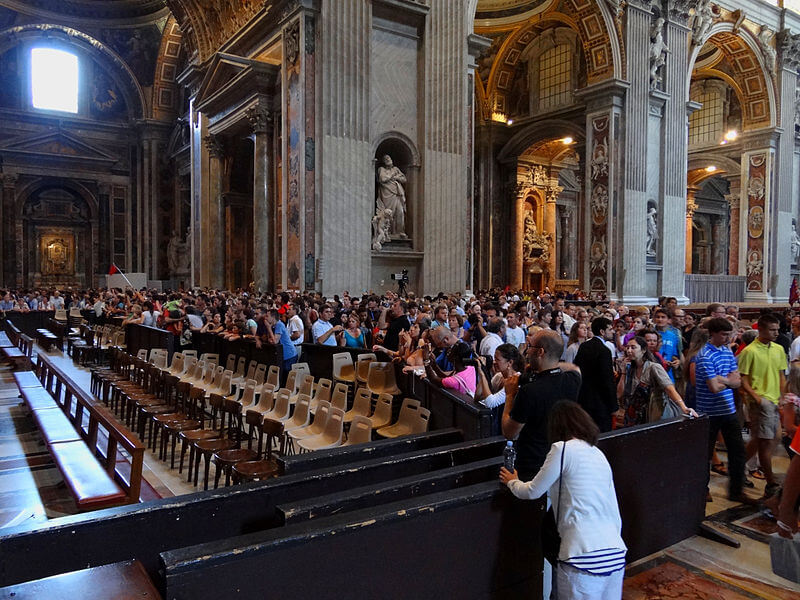
But the number of tourists will only increase. As I heard over and over, Italy doesn’t need more tourists; it needs tourists to explore other parts of Italy that might benefit from the economic stimulation of visitors…Will Italy take enough action to promote and organize tourism to its lesser-known parts? And will the world’s tourists listen?!
The need for sustainable travel worldwide:
The drawbacks of massive tourism and the related need for more mindful, responsible travel exist everywhere, not just in Italy. As the world population grows, more people begin to make enough money to travel, and travel becomes easier and faster, the number of tourists is expected to increase dramatically and quickly. Tourism will continue to increase by an average of 3.3% every year. By 2030, it’s expected to be double what it was in 2010.
What might be surprising is that the increase in tourism to “emerging economies” is expected to be double that of tourism to the more traditional destinations of “advanced economies” (4.4%/year versus 2.2%/year). In addition, the percentage of tourists going to less developed countries is expected to pass that of advanced economies by 2015, with about 58% of international tourists arriving in emerging economies by 2030. (Statistics from the United Nations World Tourism Organization)
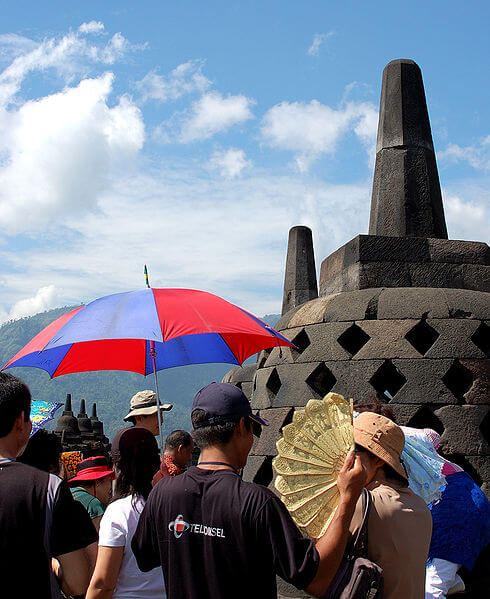
Are those emerging economies ready to handle a steady stream of more tourists? What effect will the increase in tourism have on our planet? Increased air travel, more pollution, and more crowded cities? Almost certainly. More money in the pockets of the people in developing countries and therefore a higher standard of living? Possibly.
I don’t have the answer to those questions, but I will be looking into them over the long term. What is clear to me is that those of us who already enjoy traveling need to take the extra step of traveling responsibly. I’ll be discussing what quality travel looks like and how it really is the best of both worlds: it is more sustainable for the destination (and world) and gives you a much more rewarding travel experience.
And you? What do you think the reasons for sustainable travel?

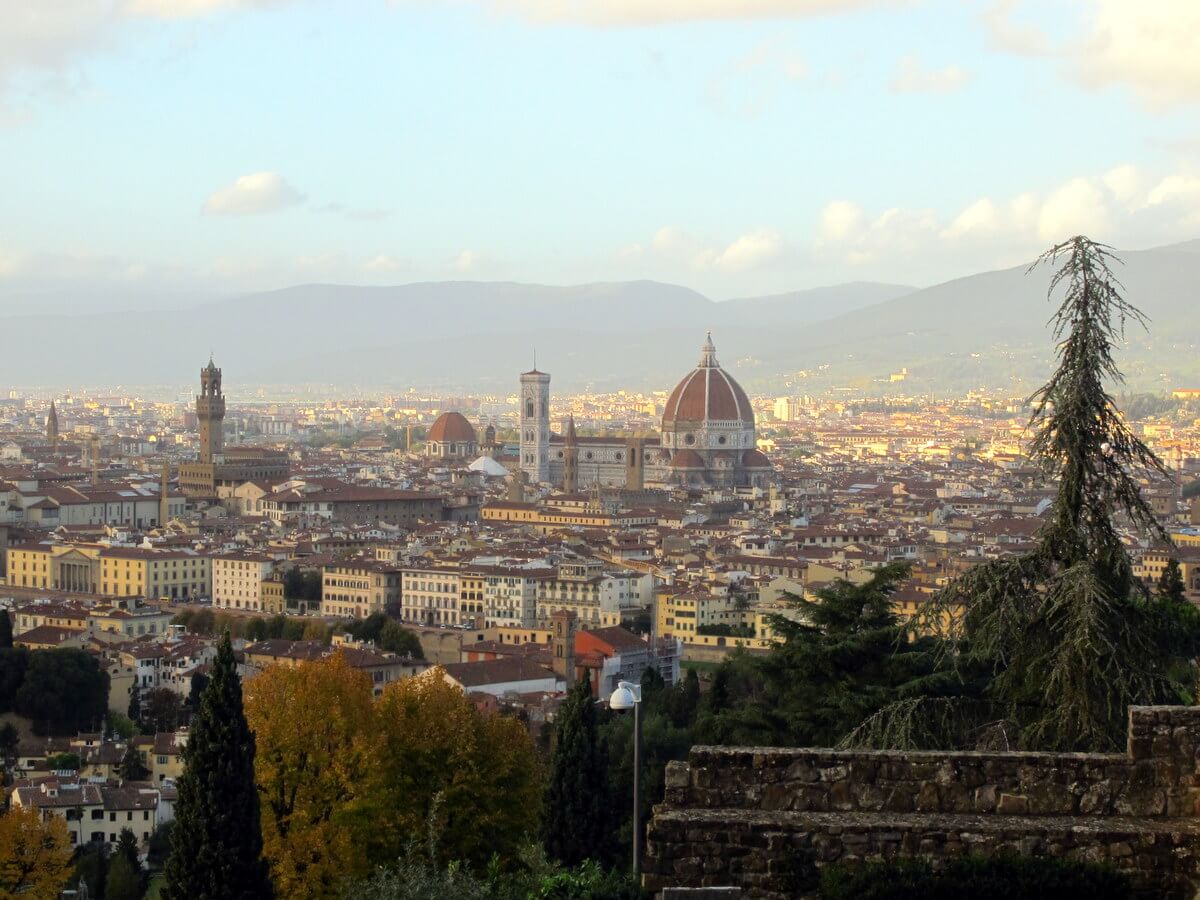
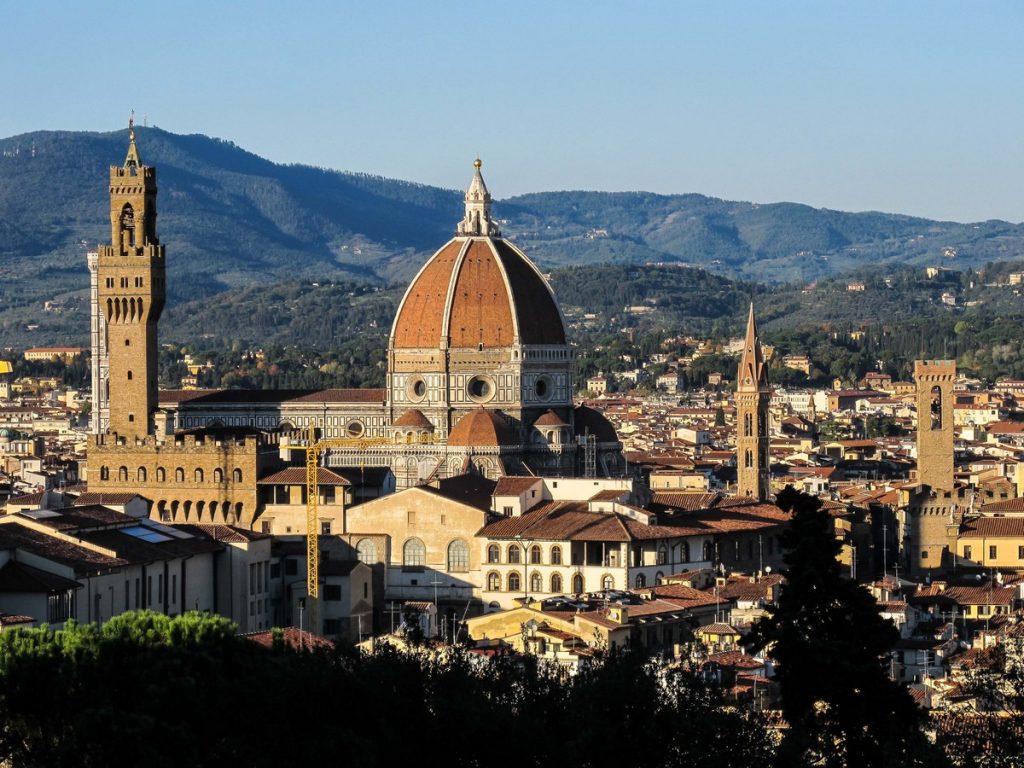
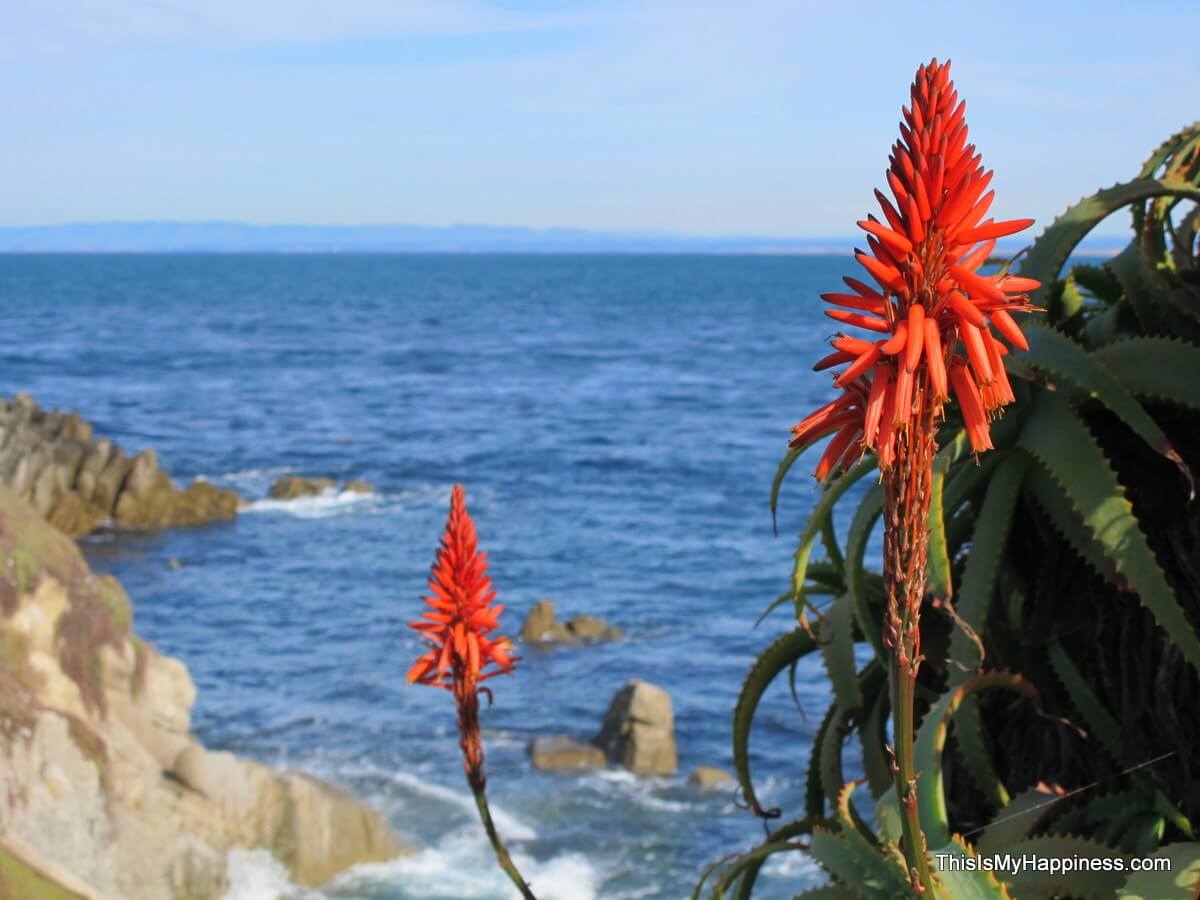

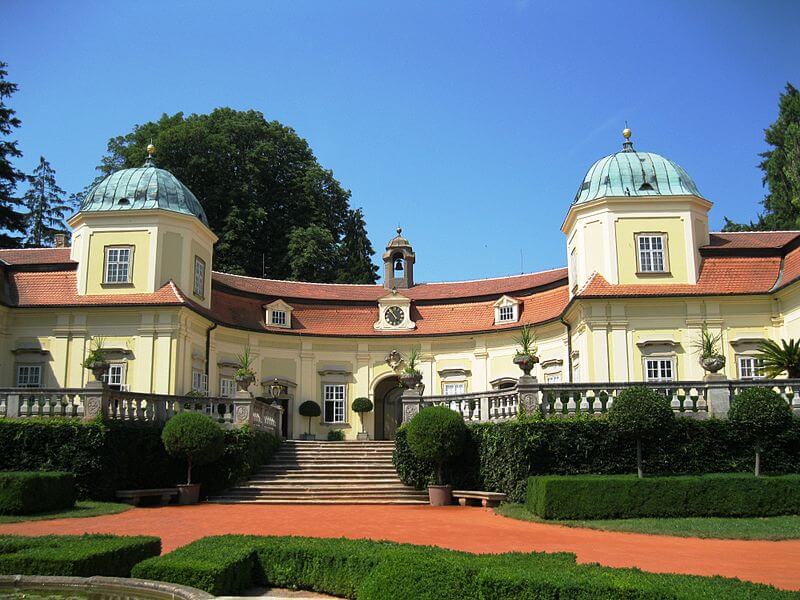
Interesting points Jenna. Indeed, “Tourist” seemed to be a dirty word in many contexts I heard it used while in Florence. Reflecting on the stats presented at Florens2012, I wondered at viable solutions to shift the focus to lesser known towns. Barring anything drastic or restrictive, they are not easy to come up with!
The mass tourism attracted by places like Florence are bane of any town, or site with list of truly international attractions. It is unavoidable, as we cannot undo the last 500 years and make the Statue of David (etc.) “not famous” ; added to this is the fact many of the passing tourists in the town originate in other parts of Italy/Europe, and are usually swinging through via bus or train purely to see this items and move on. This removes any notion of a longer visit to one part of a country to truly experience its mode of life.
There are no easy solutions – even if some success can be achieved getting people to go to other places, the amount of people actually visiting Florence and Venice (etc) will always steadily rise during times of peace. It is a simple fact of economics vs population growth.
A thought provoking post – thank you!
H
I actually don’t like the negative connotation that often accompanies the word “tourist.” When some travelers use it, it refers to other whom they feel don’t travel as “well” as they do…I always think of my grandmother, who was a “tourist” in every way. She was very poor all her life, but she enjoyed traveling as often as she could, which was once every few years. She visited me when I lived in the Czech Republic, and we went to Poland, where her parents were from, and she loved everything. The conversation we are having here about making travel more “responsible” (or whatever the right word is) is a conversation of privilege in some ways.
I completely agree that the number of people visiting Florence and Venice will never get smaller. Even if people go to other parts of Italy, almost every single one of them will never do that instead of going to Florence or Venice.
Thank you for sharing your insights, Hasan!
As a traveler I think it is important for us to seek out those lesser known spots and be sure to give them their due. For example, I visited the Sistine Chapel and was actually disappointed by the way the Vatican displays it – hoards of people herded in as fast as they came in. We had no time to stop and look because those behind us were pushing so we couldn’t funnel to an appropriate viewing area and nor would I have wanted to with the lack of air and unhappy people in that room. On the other hand, I visited the smaller towns of the Veneto – Padova, Mantova, Vicenza, etc. and all the unique places that they had to offer, often in a less crowded and more intimate experience and they were much more memorable than the Colosseum for instance. Especially the opera in Verona that is help within their ancient amphitheatre. To me that is quality travel that helps out the smaller towns, smaller economies and lesser known but equally important historical sites.
The experiences are there but they have to be looked for and it is up to the traveler to discover them either via research or blogs like these.
Great post!
I didn’t have that experience at the Sistine Chapel (thank goodness), but I will go back one day soon with my husband, who has not seen it, so it will be interesting to see what the experience is like now.
I have not been to Verona, but I can imagine that visiting that town and others makes for a very memorable trip through Italy.
You make a great point about research. I will talk about that in a future post in this series, but people need to do their research now more than ever.
I totally agree. I have been supporting “gentle travel” for a long time, and I have been trying to teach my students the importance of going beyond the “must-sees”. I have a few blog posts on my blog too. http://www.athomeintuscany.org/tag/gentle-travel/
Gentle travel is a nice term. I will check out your posts. Thanks for sharing, and I hope you will continue to add your insights as this series continues. 🙂
Jenna. This is a topic really close to my heart. Living in Venice, I feel the same frustrations when I see mass tourism increasingly becoming more wide spread. I actually was a panel speaker two years ago at the the Battle of Ideas conference, discussing the issues of tourism in Venice http://www.battleofideas.org.uk/index.php/2011/session_detail/5792.
Although my opinons were related to Venice, I think they can also be relevant on a global level.
Many destinations I think use the easy option by promoting standard tourism products. This by default encourages visitors to become ‘passive’ tourists. And it’s the passive tourists that have the potential to cause harm on a sustainability level. But is it the tourist’s fault if the destination boards, hotels, travel association all promote in this standardised way? Branded Museums, Hard Rock Cafe, global chain hotels are all standardised tourist products that draw in the passive tourists. The underlying problem is that $$$$ is more important than quality.
Quality travel is all about moving away from the sole reliance of tourism precincts and tangible resources, like Rialto Bridge, St. Mark’s square, the Bridge of Sighs (using Venice as an example). And instead focussing on more intangible resources like lifestyle, image and creativity. It’s all about avoiding the stereotypical scenario of ‘having’ a holiday through ‘doing’ the sights, and, instead move towards the mindset of’becoming’ and experiencing ‘everyday life’.
I have found that The Malaysia Tourist Board have applied some of these principles through their strong promotion of the home stay experience http://go2homestay.com/.
It’s a wonderful way to really get underneath the skin of Malaysian culture, its traditions and everyday living.
This type of holiday might not be to everyone’s tastes. Nethertheless, it does increase the concept of quality travel. It also unites local communities and other stakeholders with governmental bodies to work together in creating a more sustainable future and educating tourists to be more proactive travellers.
I’m actually planning a home stay in Sabah in the next couple of months, so I’ll keep you posted on my experiences.
Nathalie,
I was thinking about you after writing this post and planning to add you as a resource in a future post in this series. Your focus on small hotels certainly is in line with quality travel because that type of hotel supports the local businessperson and gives the traveler a more quality experience (a win-win!).
I will definitely check out the link to your talk. Venice is such a stand-out example of this issue–in fact, my students’ textbook has a unit on this very topic, so I was fortunate enough to teach it in my class recently! Even that book talked of the importance of money over quality, as you mentioned.
Please report back on the Malaysia home-stay experience. The home-stays I did in the Czech Republic & Germany were some of the most rewarding travel experiences.
Really well put, Jenna.
I really like to get deep into a culture when I travel. See the more mundane aspects of life. I like the big sites too, but definitely without the crowds. That more for a dislike of crowds though.
To that end, we try to fly less and use trains more. Do apartment rentals in residential areas with good public transport instead of hotels in just the touristy areas. Sometimes this works better than others, but still there is that intent. It really helps both the in-depthedness and the money issue to be able to be in a local neighborhood and go to local places without tourist menus in addition to the grocery store.
And while we definitely want to see some of the bigger sites, we like to be out of the main tourist flow. Smaller towns nearby are usually just as good as the bigger names.
I look forward to reading the series as you continue.
Thanks for your suggestions, Andrew! I agree that staying in a neighborhood, getting an apartment rental, taking trains, going to small towns are all great ways to have a better travel experience that also is more sustainable for the destination. More tips coming soon…
It’s tough — if more people want to see the same sites that I and millions of other Westerners have enjoyed seeing, why should they be denied that? And yet that leads to a reduced quality of the experience for the people at those sites, and does often place stresses on the city that’s receiving the influx of tourists.
Another reason I’m conflicted: many of the most overvisited sites are famous for a reason. I’m all for discovering, for example, some of the more unheralded and less visited works by Giotto that you wrote about in a recent post, and exploring the relatively overlooked towns where they can be found. At the same time, I’ve enjoyed visiting landmarks like the Rialto Bridge and the Sistine Chapel (just to take Italy as an example).
I agree with Hasan that there are no easy answers here. But I also agree that it’s important to seek resolutions of these issues.
I completely get what you are saying because I’ve thought exactly the same thing myself. I am often disappointed by the “must-sees” because they are so crowded, but they are famous for a good reason. And no one should be denied the opportunity to see those places. However, the example of what’s been happening in Venice is a good one. Should visitors be taxed to help pay for restoration? And what can be done to keep locals living there instead of moving out, as so many Venetians are? As you and Hasan said, there are no easy answers, but it’s good that we (and others) are talking about it.
Very interesting topic Jenna and one I pondered when I decided to study abroad in Florence. I was worried about the inundation of the tourists on the city altering my Italian studies. This is definitely another affect of too much tourism. It doesn’t just hurt the major sites physically but also it hurts the language I think.
I can see why you were concerned about the influx of tourists affecting your studies, and to think that local people have to deal with that all the time!
Language is definitely being affected by the larger issue of globalization, but as an English teacher, I don’t think it’s all bad. I heard a TED talk about the topic, and I liked the speaker’s view, which was something like this:” English is not your life. English is the language you use to communicate with the world, but your native language is the language of your life.”
Really interesting and pertinent points here – it made me wonder if the Victorians ever had the same discussions as part of the Grand Tour experience. That concept of “gentle travel” seems to be a great way forward, and for us to tread softly on the landscapes and buildings we love.
Thanks for your input, Bernie. I would love to learn more about the Grand Tour and how much they tried to really learn about the places they visited. I always think of it as a grand tour of buildings and art, not of the real places and people.
I’ve noticed this concept of slow or quality travel popping up more and I totally support it. Community based experiences such as observing local crafts or farming and homestays enrich a traveler’s experience in more rural areas and helps diffuse the tourist dollar directly to locals and independent business people. This model can also work in high visitor density and urban areas. In Florence for example, even wandering away from the city center for dinner helps because you are more likely to find business that don’t only cater to visitors.
Sadly, I think there is always going to be a check-list mentality for some people when it comes to traveling. I’m glad Bernie mentioned the old Grand Tour because it is exactly that. Either in a packaged tour or on a strict itinerary, some people just want to see the famous site, take a picture and move on. Whether or not those people care that they are not having a very authentic experience is unclear, but hopefully a shift to slow travel will awaken the entire traveling public and shift the norm.
I sympathize with the conservation issues addressed at the Florens conference. Visitors should support without destroying that which they have come to see.
On a side note, I also (clearly) do not see “tourist” as a totally negative label. To me at least, a tourist has a destination, a purpose or experience in mind that he or she is seeking out. Some tourists may be very narrow-minded, or even rude, in how they complete that travel but I would like to think that the spirit of the tourist is quite honest and curious. (Plus it makes for a better blog title than “Daydream Traveler” hehe)
I like all the ideas you mentioned here and will think about them more as I develop this series. Rural experiences would be high on my list. And you’re right about the “checklist” mentality–isn’t that natural to an extent? I can’t imagine going to Japan, for example, and not having a mental list of places I want to visit. Of course, I love to do more than just stop by a bunch of places, but wanting to see the most places on one’s limited travels is only natural.
About the word tourist, please see the comment I made in response to another person’s comment about tourists. I agree that it is NOT a dirty word and people who use it that way just demonstrate arrogance. Tourism in general is harmful to many places, but it’s not really the people’s fault. Are there some tourists who are disrespectful, etc.? Of course, but certainly not all. Plus, all people who travel are tourists to an extent.
Really interesting discussion!
I think the problem is that landmarks around the world become famous for being famous. They are not even necessarily the best places in the world to visit, but for people with just a week or two of holiday, it’s where they head straight away.
The key for any country is to share the promotion and not just focus on the best-known sights. And it’s about tourists actually doing some research to find things that will be interesting to them – not just the places that are in the photo section of their guidebook!
Famous for being famous…I hadn’t thought of it that way. As you said, countries need to take the lead in promoting sustainable travel options that best fit each country and hope that over time, people will follow this advice more and more. And I definitely agree that people need to do their research!
Great topic and – as always – great writing from you, Jenna! And congratulations on making it to NatGeo’s blog.
Call me an optimist, but I believe that despite some of the negative things that can come out of mass travel (carbon footprint for instance), travel – when done the responsible, conscious way – can positively impact local communities and help preserve heritage.
BUT tourism needs to be redirected into this type of travel to work. It shouldn’t be about closed-off beach resorts, made-in-China souvenirs, and flash photography at museums (do people really not realize that old paintings don’t take that well?? I still shudder at the memory of my visit to the Louvre).
I could talk about this for hours and I actually hope we’ll get to meet one day and do just that. Keep writing about this topic, I look fwd to it.
I like optimism 🙂 and I agree that tourism can be a good thing. I wrote about that topic here https://thisismyhappiness.com/2012/08/17/tourism-in-brazil/ regarding tourism development in Brazil and how that is an example of a developing country that could benefit much more from the development of tourism, if it’s done right. In fact, one focus of my “research” in this topic last year was about how it can help preserve heritage, as you mentioned. But, as you said, tourism needs to be reorganized and the tourism boards need to take responsibility to do so. It’s still a progressive idea in many ways but will catch on slowly but surely.
I also hope to meet one day and discuss this more 🙂 I hope it’s soon!
Such a great post, Jenna. Good discussion, too!
And congrats on being picked up by NG’s Radar. Kudos!
It’s so hard to find the right answers, especially as all travel makes an impact in some way, but I really believe that if people do even the smallest thing to make a difference… think about how they travel/where they stay/what they do, all those small differences will make lessen the impact in the long term.
I also think the more it’s discussed in forums – like this – online, and written about that it will eventually change the mindset of the majority. Slowly, slowly…
Thanks for stopping by, Linda, and for joining in the conversation! I completely agree that even the smallest difference really adds up when we’re talking about millions and millions of people.
Oh dear, I cringe a bit when I think of how young and daft and heedless I was when I travelled in my 20’s and late teens too. It was all good for me but I don’t think I was at all good back.
And these days we visit resorts at times with the children.. very enjoyable but so limited…
So keen to read about quality travel and responsible travel. Keen to do more of that, and more of my favourite, living in a new country for at least a year or two.
Visiting a resort, especially as a busy parent, has its value, but I agree with you that doing something like living, or staying for a while, in another country is an excellent way to see the world.
Thanks for stopping by!!